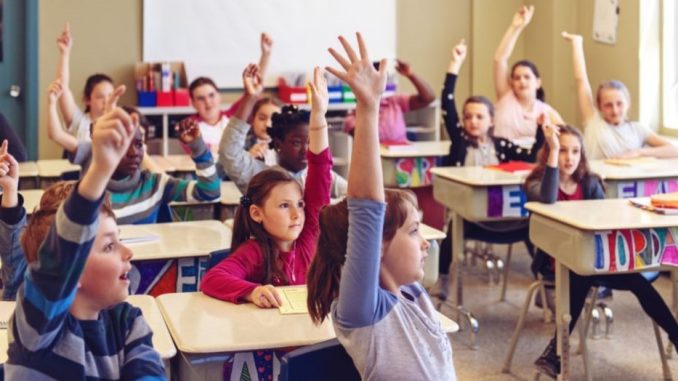
Education has long been measured by academic achievement, standardized assessments, and mastery of curriculum. While these elements are undeniably important, they represent only a fraction of what it means to prepare individuals for life beyond the classroom. Holistic development shifts the focus from purely intellectual growth to a more comprehensive view of human potential. It recognizes that emotional intelligence, social skills, physical wellbeing, and ethical reasoning are just as critical as test scores. In today’s fast-paced, interconnected world, cultivating these dimensions is not just beneficial—it’s essential.
Holistic development begins with the understanding that students are not just learners—they are people. They bring with them a range of experiences, emotions, and aspirations that shape how they engage with education. When schools focus solely on curriculum, they risk overlooking the personal and interpersonal growth that underpins long-term success. A student who excels in math but struggles with self-confidence or collaboration may find it difficult to thrive in a professional setting. Conversely, a student with average academic performance but strong emotional resilience and communication skills may navigate challenges with greater ease. Education that nurtures the whole person prepares individuals not just to perform, but to flourish.
One of the most powerful ways to support holistic development is through relationships. Teachers, mentors, and peers play a vital role in shaping a student’s sense of identity and belonging. When educators take the time to understand their students, to listen, and to connect, they create environments where learning is not just transactional but transformational. A teacher who notices a student’s anxiety and responds with empathy can make a lasting impact. That moment of care reinforces the idea that education is not just about content—it’s about connection. These relationships foster trust, encourage risk-taking, and build the emotional foundation for deeper learning.
Social and emotional learning (SEL) is a key component of holistic education. It equips students with the tools to manage emotions, build relationships, and make responsible decisions. SEL is not a separate subject—it’s woven into the fabric of daily interactions. When students learn to navigate conflict, express themselves respectfully, and empathize with others, they develop skills that are critical in both personal and professional life. Businesses increasingly value these competencies, recognizing that collaboration, adaptability, and emotional intelligence drive performance. Schools that prioritize SEL are not just preparing students for exams—they’re preparing them for leadership, teamwork, and citizenship.
Physical wellbeing is another dimension that often gets sidelined in academic environments. Yet the connection between physical health and cognitive function is well established. Students who are sleep-deprived, malnourished, or sedentary are less likely to engage effectively with learning. Incorporating movement, nutrition education, and mindfulness into the school day supports not only physical health but also mental clarity and emotional regulation. A classroom that includes regular breaks, outdoor activities, or yoga sessions is not just promoting fitness—it’s creating a more balanced and attentive learning environment.
Creativity and self-expression are also vital to holistic development. When students are encouraged to explore their interests, experiment with ideas, and express themselves through art, music, or writing, they develop confidence and a sense of agency. These experiences foster innovation and problem-solving, skills that are highly valued in business and entrepreneurship. A student who learns to think creatively is better equipped to navigate ambiguity, generate solutions, and contribute meaningfully to complex challenges. Education that nurtures creativity doesn’t just produce artists—it produces thinkers.
Ethical reasoning and character development are equally important. In a world where decisions often have far-reaching consequences, the ability to think critically about values, integrity, and impact is essential. Schools that engage students in discussions about ethics, social justice, and global responsibility help cultivate a sense of purpose and accountability. These conversations encourage students to consider not just what they can do, but what they should do. In business, where ethical dilemmas are common, this kind of reasoning is invaluable. Leaders who act with integrity and empathy often trace those qualities back to formative educational experiences.
Holistic development also requires flexibility in how success is defined and measured. Traditional metrics like grades and test scores offer a narrow view of achievement. Alternative assessments—such as portfolios, presentations, and reflective journals—allow students to demonstrate growth in diverse ways. These methods honor individual strengths and encourage self-awareness. They shift the focus from performance to progress, from comparison to personal development. When students are assessed holistically, they are more likely to engage authentically and take ownership of their learning.
Ultimately, moving beyond the curriculum to embrace holistic development is about aligning education with the realities of life. It’s about recognizing that success is multifaceted and that learning is deeply personal. Schools that adopt this approach create environments where students are not just informed but empowered. They cultivate learners who are curious, compassionate, and capable of navigating complexity with confidence. In business, in community, and in life, these qualities are what drive meaningful impact. Holistic education doesn’t just prepare students for the next test—it prepares them for the future. And in doing so, it honors the full spectrum of what it means to be human. holistically, they are more likely to engage authentically and take ownership of their learning.
Ultimately, moving beyond the curriculum to embrace holistic development is about aligning education with the realities of life. It’s about recognizing that success is multifaceted and that learning is deeply personal. Schools that adopt this approach create environments where students are not just informed but empowered. They cultivate learners who are curious, compassionate, and capable of navigating complexity with confidence. In business, in community, and in life, these qualities are what drive meaningful impact. Holistic education doesn’t just prepare students for the next test—it prepares them for the future. And in doing so, it honors the full spectrum of what it means to be human.